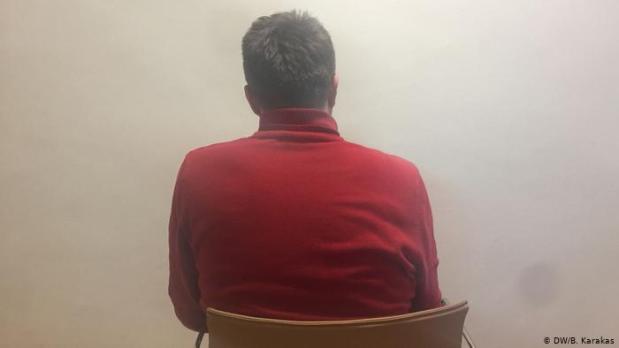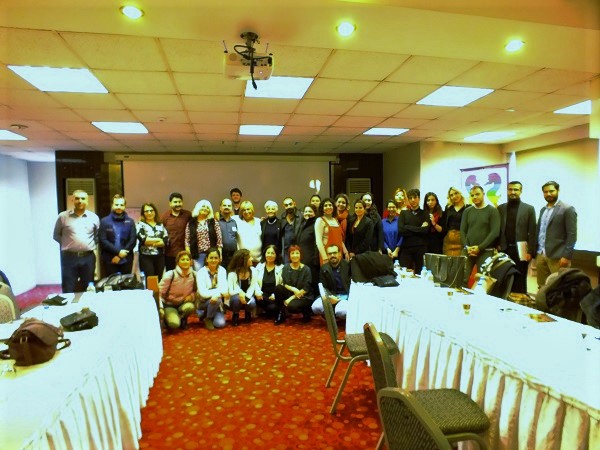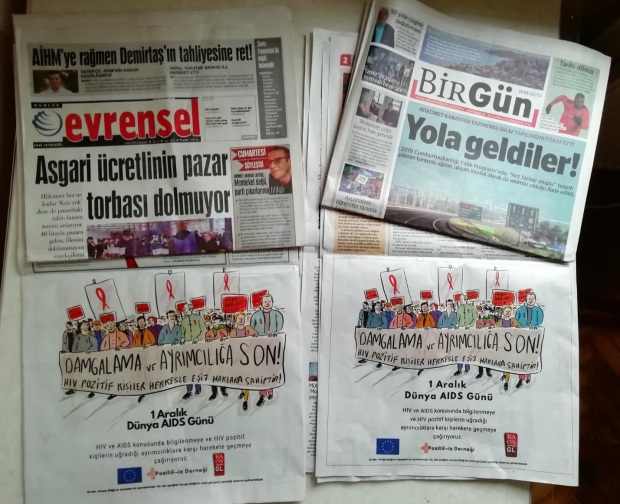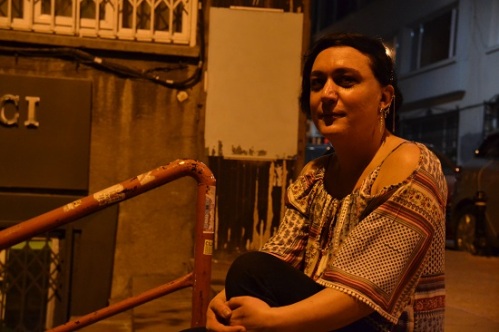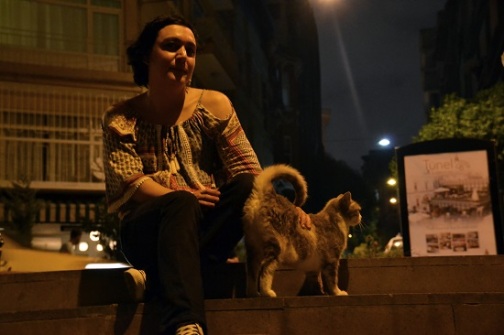LGBTI individuals in Turkey have to hide their identity for fear of losing their jobs, having a difficult time finding a job, or facing discrimination. Practises during the recent state of emergency (OHAL) have worsened the problems for “disregarded” LGBTI individuals.
Source: LGBTIs in business life: “Get out right now” (İş hayatında LGBTİ’ler: “Derhal terk edin burayı”) Burcu Karakaş, Deutsche Welle, December 14, 2018, https://www.dw.com/tr/i%C5%9F-hayat%C4%B1nda-lgbtiler-derhal-terk-edin-buray%C4%B1/a-46733048
“I couldn’t reach the status of a white collar worker. I have never been able to find a job. I came to a point where I was going to commit suicide because I couldn’t find a job.”
Trans woman Pınar started sharing her story to us by telling how she had faced discrimination during university education before beginning to work. While she was studying at the Department of Communication at Marmara University, the head of the department asked her “to dress properly”. “I was 20 years old then. I was suspended from school because I didn’t fit the model they asked for.” Pınar who shared her experiences with DW Türkçe has always returned empty-handed from the dozens of job applications she has made till today. Pınar is only one of the LGBTI people in Turkey who face discrimination in their work life because of their gender identity.
The results of the questionnaire “LGBTI+ in employment” which was issued by Prof. Mary Lou O’Neil, Dr Reyda Ergün, Selma Değirmenci, Doğancan Erkengel in cooperation with Kaos GL Association and Kadir Has University and edited by Murat Köylü reveal discrimination LGBTI individuals are exposed to in their work life in Turkey.
The questionnaire that was filled out by 198 private sector and 89 public sector employees, involve senior executives, mid-level managers, specialists, labourers, and researchers. The questionnaire’s results show that LGBTI employees take some precautions, hide their gender identities and sexual orientations, as well as changing their style of speaking and body language. This starts when job seeking and continues during employment because they think they will definitely be subjected to discrimination. In the evaluation of the questionnaire’s results evaluated, it is stated that “the experience of having to walk on thin ice all the time becomes an ongoing discrimination and can cause severe psychological effects on LGBTI employees.”
“There is discrimination; but what can you do about it, I have to earn my living.”
58% of the private sector employees who attended the study were subjected to discrimination in the place of work or had to hid their identities to prevent it. Only 32 of the 198 people were plain-dealing with their gender identities during the job application, while 89 hid their identity entirely. A gay person working as personnel in the field of the law says that “I cannot be open about it; because they would not definitely employ me. This is a small town; the employers are somewhat conservative.” A gay person working as a service personnel at the entertainment business states that “I am always exposed to discrimination by the customers; but what can you do about it, I have to earn my living”, while a trans woman working as a mid-level manager at an advertisement business says that “being a trans person has isolated me.”
8 of the private sector participants express that they are directly exposed to discrimination during interviews and tests during the hiring process. A gay individual working as a specialist in the information sector shares discrimination he faced and says “During the interview, I was asked why I am exempted from serving in the military. I told them the truth. The woman who was interviewing me sent me away, saying ‘get out right now’.” When they were asked whether or not there is any institutional prevention mechanism against discrimination in the private sector, 94% of the participants answer that there is no such mechanism or they don’t know anything about it
Pınar: They changed their mind when they saw the blue identity card
Trans woman Pınar who shares her story with DW Turkish says that she is a private school graduate. Pınar can speak French and English. Despite the fact that her university education is left half-finished, she thought she could find a job because she was sure about herself due to her previous education; however, it didn’t work out. She states that the employers who had said “there is no problem, you can work here” changed their minds when they saw the blue identity card; “I didn’t have the operation. When I gave my identity card, they would get baffled. The people who told me that I could work with them would send me away when they saw the blue identity card.”
Pınar came to the brink of suicide when she couldn’t find a job after having to quit her education at the Faculty of Communication. One day, while she was walking back to her home with rat poison, she saw an advert saying “toilet cleaner wanted” on the window of a third-class pub. She entered inside right away: “The man felt sorry for me and I started working there as a toilet cleaner. Six months later, my boss said to me that “Pınar, you need to work as at the bar” and my life became totally different.
The effect of the state of emergency on business life
The experiences of the public officers who participated in the study are not so different from those of the private sector employees. To the question “Do you think you can be open about your gender identity at the place of work?”, 36% of the public sector employees answered that “I completely hide it”, 39% say they are partially open, and 7% tell that they are “completely open”. Moreover, to the question of whether or not they face direct or subtle discrimination, 43% of the participants stated that “I don’t face discrimination because I hid my identity”. According to the public sector participants, practises during the recent state of emergency (OHAL) have made the problems in the workplace worse for LGBTI individuals. To the question “Do you think if you experience any change regarding your working conditions at the institution during the state of emergency?”, 36% of the participants indicate that the conditions have gotten worse. The public employees point out that the pressure has increased during the state of emergency and therefore, the conditions for LGBTI employees in the public sector have become more difficult.”
“LGBTIs are neglected”
To the question “How do the problems they face because of their gender identities affect their productivity at the place of work”, a gay police officer answered that “I see everyone as a potential threat. I am disgusted by my job and the environment that I am in”, while a gay gardener states that “I am cautious in case someone finds out and blacklists me. When a person implies something, I start to think he or she learned it and to get cold feet about it; because I could lose my job.”
A bisexual woman working as a sociologist in the public sector states that she hasn’t faced discrimination at the institution but not because of the positive attitude towards LGBTI people but because LGBTI individuals are ignored.
When both private and public sector employees were asked what they would recommend for the fight against discrimination the answers which stand out are: social awareness campaigns, prohibition of discrimination in national regulations, inter-corporate training as well as organized solidarity and discrimination resistance networks. Additionally, the report highlights that the state should fulfill its duty for protection and support.
Photo credit: Peter Hershey

